Newsroom
BecA-ILRI Hub biennial report 2018-19
- Details
- Written on Tuesday, 14 July 2020 14:42
The BecA-ILRI Hub biennial report is out!
It's titled: 'Empowering African bioscientists for agricultural transformation' and it features BecA's activities and achievements in the aforementioned years. None of our achievements would have been possible without our valued staff, partners and stakeholders, we hope you enjoy it!
ABCF 2020 - Call for applications
- Details
- Written on Saturday, 14 December 2019 14:56
The call for 2020 Africa Biosciences Challenge Fund fellowships is now open. The purpose of the ABCF program is to develop the capacity for agricultural biosciences research in Africa, to support research for development projects that contribute towards increasing food and nutritional security and/or food safety in Africa and to facilitate access to the BecA-ILRI Hub facilities by African researchers and their partners. The fellowships are offered to applicants with innovative ideas for short term research projects (up to 6 monte4d8c.jpghs). Research projects should be aligned with national, regional or continental agricultural development priorities and CGIAR strategies for research.
Areas of research
Applicant must be a scientist from African National Agricultural Research Systems (NARS) e.g. national agricultural research institutes and universities. S/he should be interested to carry research on crops and livestock in the areas of national or regional priority. Scientists conducting research in the following areas are particularly encouraged to apply:
Livestock genetics
Livestock focus: African indigenous breeds, particularly goats, chickens, pig, large ruminants and fish.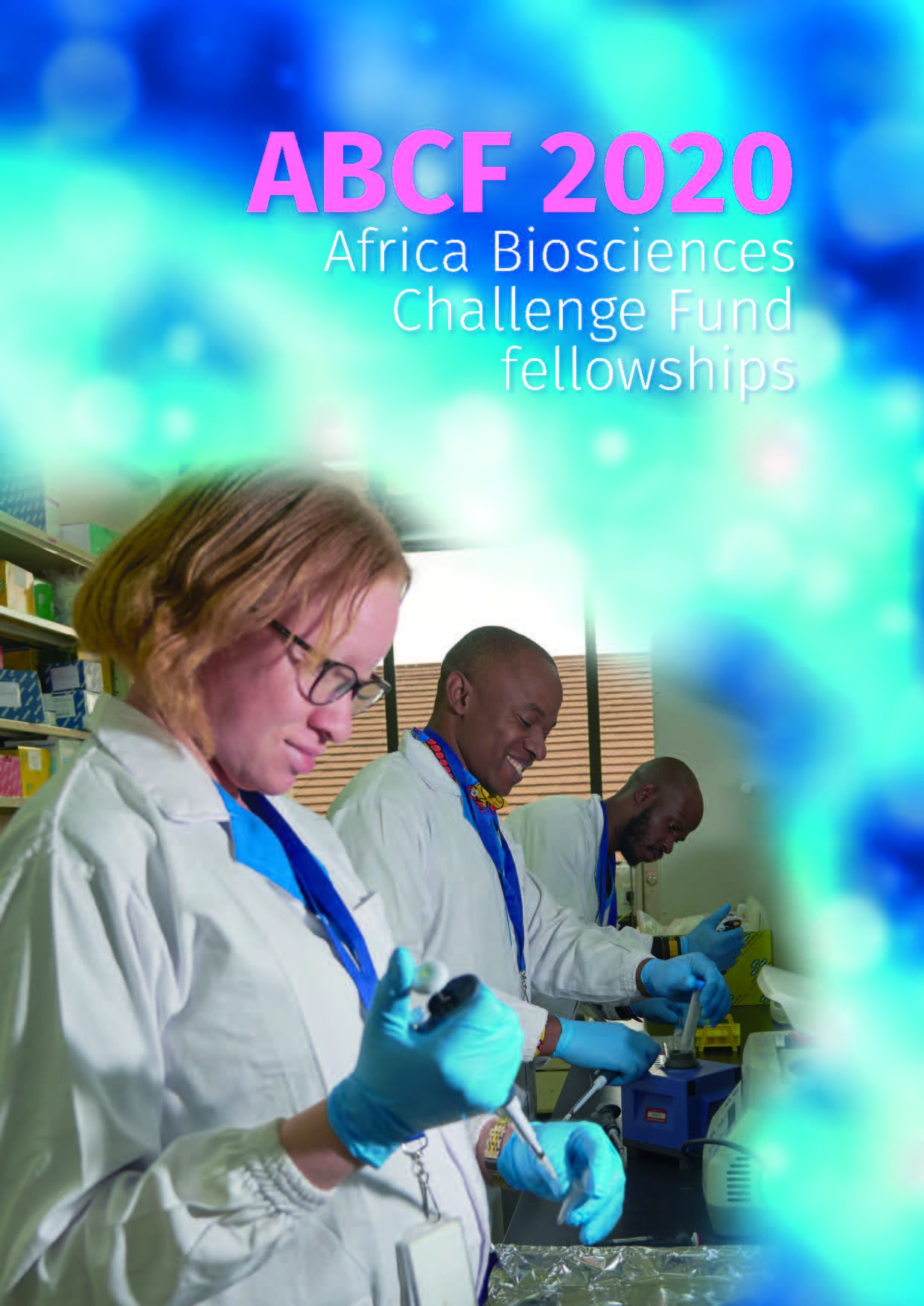
Research focus: harnessing genetic diversity for; conservation; resistance to disease and drought; improved productivity; disease control and rapid diagnostics of animal disease such as African Swine fever (ASF), Peste des Petits Ruminants (PPR); tick and tickborne diseases; Newcastle disease; Gumboro disease, etc.
Crop improvement and plant protection: molecular breeding, rapid diagnostics, management of crop pests, pathogens and weeds, plant-microbe interactions, soil health, application of microbial technology for improving the adaptation of staple food crops and forages to biotic and abiotic stresses.
One Health: food nutrition quality analysis, food safety and mycotoxin analysis, zoonotic microbes (bacteria, virus, fungus, protozoa, helminth) and antimicrobial resistance.
Bioinformatics and data sciences: on research areas listed above.
Eligibility
Applicants of the fellowship must:
Be 45 years of age or younger at the time of application
Be from the 18 BecA mandate countries which are: Burundi, Cameroon, Central Africa Republic, Congo Brazzaville, Democratic Republic of the Congo, Equatorial Guinea, Eritrea, Ethiopia, Gabon, Kenya, Madagascar, Rwanda, São Tomé and Príncipe, Somalia, South Sudan, Sudan, Tanzania and Uganda. In exceptional cases, applicants from other African countries will be considered.
Be a researcher employed in an African NARS.
Be actively engaged in research that is contributing to agricultural development in Africa.
Have attained a minimum education level of a master’s degree
Have good working knowledge of written and spoken English.
Submit the application with a signed letter of endorsement of the application or letter of nomination from the head of the applicant’s home institute/organization.
NOT be a previous fellow.
The Fellowship will support;
Research*costs at the BecA-ILRI Hub;
Travel from home country to Nairobi and back.
Medical insurance;
Accommodation; and
A modest subsistence allowance.
*The ABCF fellowship does not cover fieldwork or research in the applicant’s home country.
Timelines
The call will be open on 15 December 2019 and closed on 20 January 2020.
The successful candidates will be notified by 15 March 2020.
Application instructions
The ABCF Fellowship uses an internet-based application system. Applicants must have access to a computer and internet to apply.
Written responses must be your own or original work. Using language/information copied from other sources will be considered plagiarism and will result in the application being disqualified.
Brachiaria Grass is introduced to Masindi, Uganda
- Details
- Written on Thursday, 18 October 2018 15:02
Collins Mutai, one of BecA-ILRI Hub’s research associates, recently visited Masindi District, in Uganda to introduce Brachiaria grass to the farmers as an alternative, and more resilient forage option. Masindi District lies in the cattle corridor of western Uganda. It presents a great opportunity for the Climate-Smart Brachiaria project to demonstrate the impact at a farm level.
He met with Kabagonza Kassim, Vice-Chairperson and Secretary for Agriculture-Masindi District Local Government; Morris Agaba, a Brachiaria farmer and former ILRI scientist and Mr Wobusobozi a farmer from the district. Morris Agaba has Brachiaria grass on ten acres of his land and uses his farm to demonstrate the feasibility of Brachiaria to interested farmers who often adopt a ‘wait-and-see’ attitude towards new technologies.
Mr Agaba’s experience with Brachiaria grass on his farm qualified him to be a great collaborative resource, to help Collins engage Mr Kassim, a member of the district’s local government, on Brachiaria grass establishment, preservation and use.
Reducing Toxicity of Grass Pea
- Details
- Written on Friday, 28 September 2018 15:05
A collaborative research project of the John Innes Centre (JIC), the Biosciences eastern and central Africa International Livestock Research Institute (BecA-ILRI) Hub, the International Center for Agriculture Research in the Dry Areas (ICARDA), the Ethiopian Institute of Agricultural Research (EIAR) and the Queensland University of Technology (QUT) has been awarded £1.2m funding by the UK Government’s Global Challenges Research Fund (GCRF). The project entitled Unlocking the Potential of Grass pea for Resilient Agriculture in Drought Prone Environments (UPGRADE) aims to improve grass pea for low neurotoxin content and explores its potential as fodder crop in Africa.
Grass pea is extremely drought tolerant. It performs well even under the extreme environmental conditions in which other crops suffer heavily if not die. Therefore, grass pea has been one of the most important crops for poor subsistence farmers in some of the most vulnerable parts of the world. However, grass pea contains a neurotoxin (β-ODAP) that causes a neurological disorder called lathyrism in humans and domestic animals. If consumed as the main food during a prolonged period of malnourishment, it can cause irreversible paralysis.
The project will utilize available grass pea genetic resources and develop a TILLING mutant population: a set of thousands of grass pea lines each carrying different mutations, such as reduced toxin levels and desirable agronomic traits, that can be screened quickly to develop new non-GM varieties. The project will also explore plant transformation and gene editing techniques to speed up the process of crop improvement. Non-GM grass pea lines will be evaluated for toxins level and other important agronomic traits for food and feed crops.
The BecA-ILRI Hub will evaluate the suitability of grass pea as a forage crop for mix/inter-cropping with the “wonder grass” Brachiaria. The ability of grass pea to capture atmospheric nitrogen could improve soil fertility and enhance sustainability of Brachiaria grass, while grass pea’s high protein content could improve forage nutritive values. The UPGRADE project will combine lab- and glasshouse-based research in the UK with field studies in Ethiopia and Kenya to allow the rapid integration of the new, low-toxin varieties into existing breeding programmes in sub-Saharan Africa.
Improved grass pea will provide safe food and nutritious livestock feed for poor subsistence farmers in some of the most vulnerable parts of the world.
Build, Empower and Amplify: Bioinformatics for agri-research in Africa
- Details
- Written on Tuesday, 28 August 2018 15:05

The John Innes Centre, Earlham Institute and the BecA-ILRI hub, Kenya, in July, jointly initiated a comprehensive 8-month training programme to address the critical shortages in bioinformatics capabilities in Africa. The programme named "Bioinformatics Community of Practice (BiX CoP)" is designed to build a strong self-sustaining network of bioinformaticians in Africa with expertise in data analysis for agricultural biosciences. It will be implemented in three phases: Build, Empower and Amplify.
The first phase (Build) consists of seven formal training modules in various areas of bioinformatics including programming in the Unix environment, analysing NGS data, whole genome assembly, diversity studies, biostatistics and phylogenetics and implementing bioinformatics pipelines over various hardware infrastructures. Each formal training module (one to two weeks each) will be followed by an exercise period of a similar length to ensure that the knowledge and skills acquired in the formal training modules are immediately used by the fellows.
The second phase (Empower) will consist of a train-the-trainer programme and a final project, whereby the fellows will be taught skills to pass on their knowledge to other students and scientists and will showcase their newly acquired bioinformatics skills on real-life analysis problems.
The third phase (Amplify) will entail a short training on soft skills (project proposal writing, scientific communication, etc) as well as two regional training workshops in which the Bioinformatics fellows will be the trainers for other African colleagues.
The technical, transferable and pedagogical skills impacted during these three complementary phases are not commonplace in many bioinformatic training programmes. Furthermore, it is hoped that hosting the carefully selected participants together for eight consecutive months will foster interaction that will build a self-sustaining “community” providing bioinformatics support beyond the training programme.
This initiative is modelled after the successful flagship training programme at the BecA-ILRI hub - Africa Bioscience Challenge Fund (ABCF), which is supported by the Bill & Melinda Gates Foundation and the UK Department for International Development. It is co-funded through a grant from UK’s Biotechnology and Biological Sciences Research Council (BBSRC) as part of the UK Global Challenges Research Fund (GCRF-STARS). The three co-PIs for this programme are Dr Cristobal Uauy (John Innes Centre, UK), Dr Jean-Baka Domelevo Entfellner (BecA-ILRI Hub, Kenya) and Dr Robert Davey (Earlham Institute, UK) and is being managed by Dr Oluwaseyi Shorinola (John Innes Centre, UK).
Dr Jacob Mignouna, Director of the BecA-ILRI hub as a new sustainable model: “The BixCoP capacity building model, which is designed with sustainability and long-term impact in mind, is a new model that will help guide BecA-ILRI Hub ABCF program moving forward. I’m very excited by this new model of engagement of scientists in the region to jointly address the need of generating and utilizing bioinformatics tools to transform agriculture in Africa”.
Dr Cristobal Uauy (JIC), the project lead for the GCRF-STARS grant said: “We are extremely excited to launch this initiative to address the shortage of bioinformatics skills in the region. This builds upon our long-term partnership with the BecA-ILRI hub and looks to deliver training from a completely novel perspective.”
Dr Davey, co-PI from Earlham Institute said, "This programme is a testament to the quality of the Carpentries materials, the organisation of the partners, and the commitment from BBSRC and BecA-ILRI Hub to train the next generation of bioinformaticians in Africa. It's hugely exciting to be able to support the fellows, and see how their new skills can be used to empower themselves and their communities."
Dr Jean-Baka Domelevo Entfellner, head of bioinformatics at the BecA-ILRI hub explained the motivation for the training: "Agriculture in Africa needs modern biosciences to improve and overcome the challenges it is currently facing. Bioinformatics represents a major opportunity for an under-resourced continent to leap to the forefront of world-class science to address these challenges. For this to happen, we need a strong commitment to human capacity building in bioinformatics in the continent. With this BiXCoP programme, we are making a bold and decisive step towards the creation of an effective and sustainable network of bioinformatics scientists for agricultural biosciences in Africa".
The cohort of fellows for this 2018 Bioinformatics Community of Practice is made of 14 early-to-mid-career African researchers carefully selected from nine different countries (Democratic Republic of Congo, Ethiopia, Kenya, Nigeria, Rwanda, Sudan, Uganda, Tanzania, Zimbabwe).
The programme was officially launched with an opening event held on the 3rd - 4th of April at the International Livestock Research Institute (ILRI) campus, Nairobi, Kenya. During this event, the 14 BiX CoP fellows met together for the first time, shared their expectations for the programme and discussed how to maximise their learning during the training and to amplify the impact of the training upon their return to their home institution.
Remarks by Dr Wellington Ekaya- ILRI Head of Capacity Development: The BiXCoP training is a well-thought-out model that builds on past successes in capacity development at the BecA-ILRI Hub through the ABCF Programme. The programme has been shaped by engagement and partnership with individuals and institutions in Africa, Europe, USA and beyond. The BFX Cop aims at addressing a pressing capacity gap in Africa, which if addressed, will unlock Africa’s potential for harnessing advances in biotechnology to accelerate agricultural research and innovation. Its immediate potential lies in effectively supporting the existing 14 ABCF alumni-led Communities of Practice.
For more information:
Dr Oluwaseyi Shorinola
John Innes Centre
+44 (0)1603 450 460
This article has been derived from this Earlham Institute
AfriPlantSci Workshop at Pwani University
- Details
- Written on Monday, 27 August 2018 15:22
AfriPlantSci invites applications from early-career researchers from across sub-Saharan Africa whose research falls within the broad topic of Plant Health. This includes MSc students, PhD students and researchers recently graduated from their studies (within 5 years). Potential attendees should have the aspiration to build their careers through international networks and a passion to address plant health challenges in Africa.
This course will cover a broad range of science related to plant health, combined with practical hands-on experience of the latest techniques which can advance research in this area. The speakers will provide expert overviews of their fields, followed by journal clubs and in-depth discussions of their own areas of work. The hands-on practical sessions will demonstrate how to best utilise current technologies to advance plant health research in Africa. Together with leadership skills training, this course will provide attendees with a holistic insight into plant health and the necessary skills to advance their careers in science. Attendees will have the opportunity to interact informally with project leaders, PostDocs, PhD students and technical staff from JIC and Pwani to further enrich their learning experience.
To apply for this learning opportunity, visit the Acacia Africa website or follow this link to apply directly to the online form. The deadline for filling up the online form is 30th September 2018.
A delegation from the 2Blades Foundation visits the BecA-ILRI Hub
- Details
- Written on Friday, 26 January 2018 15:25
From 17 January 2018, the Biosciences eastern and central Africa-International Livestock Research Institute (BecA-ILRI) Hub has been hosting a delegation from the 2Blades Foundation. The main objectives of the visit by Dr Roger Freedman, Dr Diana Horvath, Dr T. Lynne Reuber and Dr Peter van Esse is to identify common areas for synergies including resource mobilization and capacity building. During this time, they held series of meetings with the BecA-ILRI Hub staff as well as other partners.
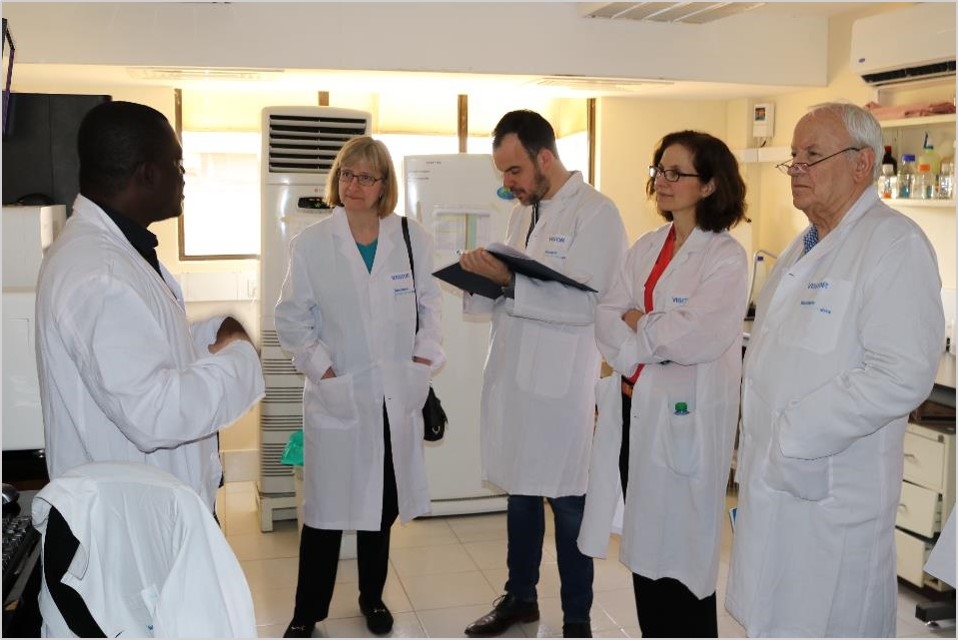
Dr. Nasser Yao (Left) explaining to the delegation the role of the molecular breeding platform at BecA and how the IGSS and KASP genotyping platforms are linked.
The 2Blades Foundation focuses on the advancement in the development of disease resistant varieties for smallholder agriculture. They achieve their goal by working with national and international partners. They also focus on training scientists in business and management skills with the aim of giving them knowledge and ability to transition science to applications which is of great essence in the global developmental agenda for agriculture.
Dr. Peter van Esse who is currently the Principal Investigator of the 2Blades group in the Sainsbury Laboratory (TSL), UK and a member of this delegation, will a seminar this morning on “Mining disease resistance traits from crop relatives to make a rust-resistant soybean” on ILRI Campus in Nairobi Kenya. The Seminar was attended by staff, visiting scientists and staff at ILRI and other CGIAR Centers.
The BecA-ILRI Hub's Integrated Genotyping Service and Support (IGSS) platform exists to help the African national crop and livestock breeders to harness the power of genomic data to increase the efficiency of their breeding programs.
BecA-ILRI Hub's contribution towards boosting communication of scientific outputs in Africa
- Details
- Written on Monday, 20 November 2017 15:59
20 November 2017 at the BecA-ILRI Hub: Today marks the first day of a six-day training workshop on Scientific Research Paper Writing which will be followed by four additional days of training on Communicating Science to non-Scientific Audience. The workshop is one of BecA-ILRI Hub’s Africa Biosciences Challenge Fund (ABCF) program annual demand-driven skill enhancement training workshops. This is the first time the training has been designed to cover both scientific writing and communication of science to non-expert audiences.
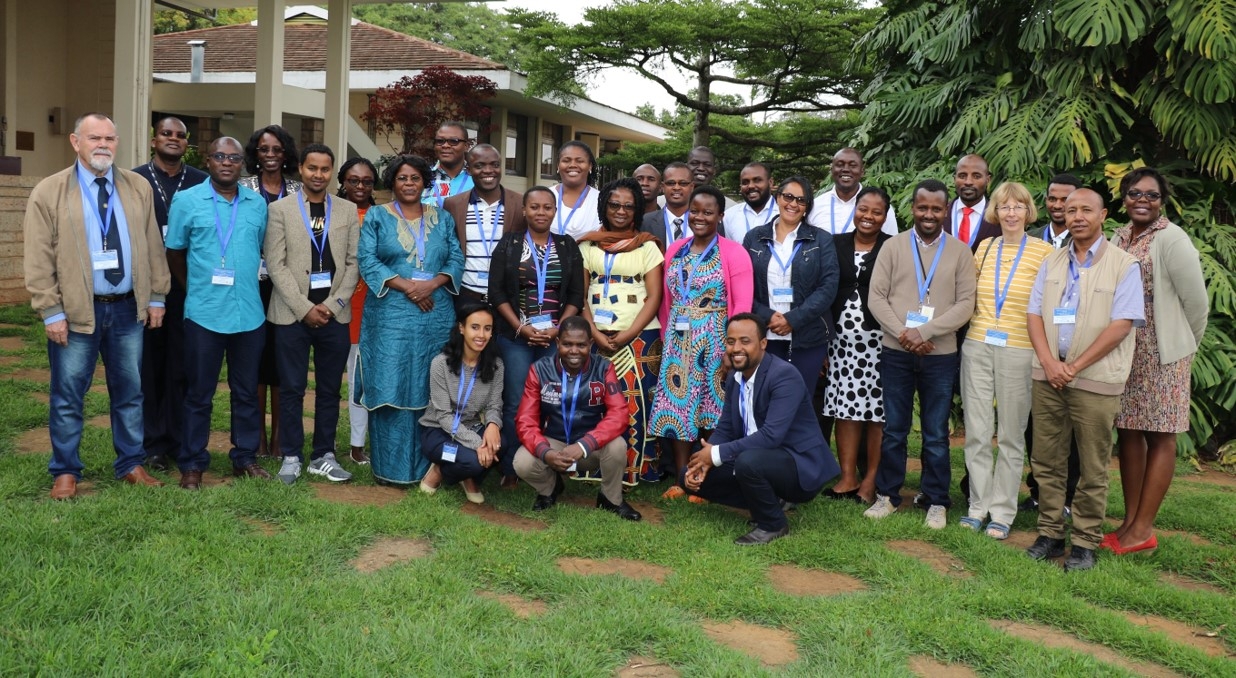
More than ever before, researchers today are increasingly being challenged to demonstrate the impact of their research, over and above the number of publications in high-impact peer-reviewed journals. Moreover, researchers from National Agricultural Research Systems (NARS) have to make sure their findings are understood by key actors, among them policy makers, extension agents, private sector, farmer organizations and funding agencies. It is imperative today that researchers and scientists have the knowledge and skills to communicate their research findings to these diverse actors.
For the next 10 days, early career African NARS researchers from Burundi, Cameroon, DR Congo, Eritrea, Ethiopia, Ghana, Ivory Coast, Kenya, Niger, Nigeria, Rwanda, Sudan and Tanzania will have the opportunity to acquire new knowledge and skills needed for the preparation of quality scientific publications that can be accepted in high impact journals, as well as effectively communicate the same scientific messages to non-scientific audiences. The training workshops have a sharp focus on alumni of the ABCF program, thus accelerating publication of findings emanating from part of their research conducted at the BecA-ILRI Hub. BecA-ILRI Hub’s collaborators from International Foundation For Science (IFS), Sweden and The International Service for the Acquisition of Agri-biotech Applications (ISAAA), Kenya will facilitate the courses.
Rotation PhD opportunity in plant microbial science in UK
- Details
- Written on Thursday, 09 November 2017 16:08
The prestigious Rotation PhD programme is designed for outstanding applicants with excellent academic records who show the potential for research at the highest level.
This is the longest running rotation programme in plant and microbial sciences in the UK with a proven track record in research training and academic excellence since 2003.
The four year studentship includes a generous stipend, university registration fees and research/training funds.
It is open to UK, EU and International students.
This programme involves three internationally respected research institutes in Norwich;
John Innes Centre
The Sainsbury Laboratory
The Earlham Institute
You will be registered for your degree at the University of East Anglia.
For more information on the course and how to apply, visit the John Innes Centre website: https://www.jic.ac.uk/training-careers/training/postgraduate-research/rotation-phd/
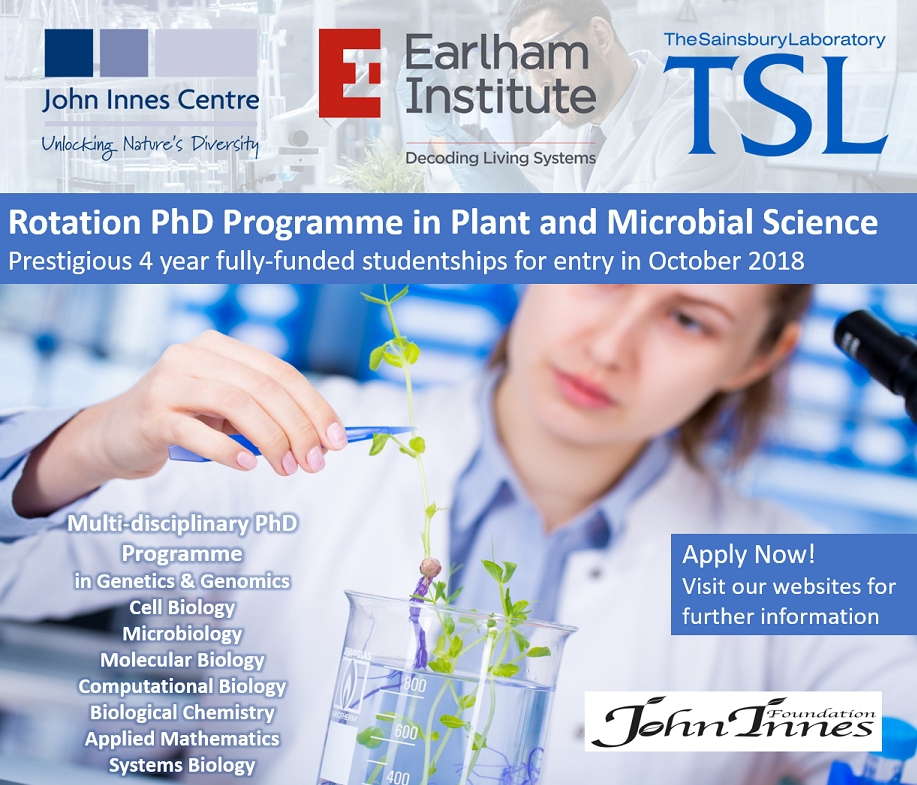
Improving potato production in Cameroon – perspectives from a BecA-ILRI Hub alumnus
- Details
- Written on Wednesday, 01 November 2017 16:12
Mariette Anoumaa, assistant lecturer at the University of Dschang and BecA-ILRI Hub alumnus recently defended her PhD in plant physiology and biotechnologies at the University of Dschang in Cameroon. Her research was supported through the Biosciences eastern and central Africa-International Livestock Research Institute (BecA-ILRI) Hub Africa Biosciences Challenge Fund fellowship program.
161fe.jpgOn 26 September 2017, I successfully defended my PhD at the University of Dschang in Cameroon. To me, this represents more than just an academic achievement. It is a major step in my journey towards improving potato production in Cameroon.
With over 200,000 mostly smallholder farmers growing potatoes on over 100,000 hectares of land, potatoes are an important food crop and source of income in Cameroon. However, the prevalence of pests, diseases and the lack of disease-free planting materials continue to hinder increased production.
In my view, breeding potatoes that can withstand the pests and diseases is the best option to improve potato production in Cameroon. The first step towards this is to determine the diversity and relationship between potato cultivars in Cameroon, and to build a core collection that can be used in a breeding program – this is what my PhD research was all about: 'Genetic characterization of potato from the Western Highlands of Cameroon.'
I must thank the BecA-ILRI Hub for its contribution to my success in achieving the first phase of my research. Through the BecA-ILRI Hub’s Africa Bioscience Challenge Fund (ABCF) program, I received full support for the molecular analysis part of my PhD research project. From my research findings, I was able to select some local varieties of potato that have traits of interest (high yield and high dry matter content). Going forward, I would like to identify varieties that have resistance to diseases and incorporate them in the breeding program.
Beyond the award of a PhD, I am looking forward to being promoted to senior lecturer in the Department of Plant Biology of the University of Dschang following an assessment of my progress by the Consultative Committee of University Institutions in the coming months. I feel this will be an even greater opportunity for me to share the knowledge I gained through my experience at the BecA-ILRI Hub.
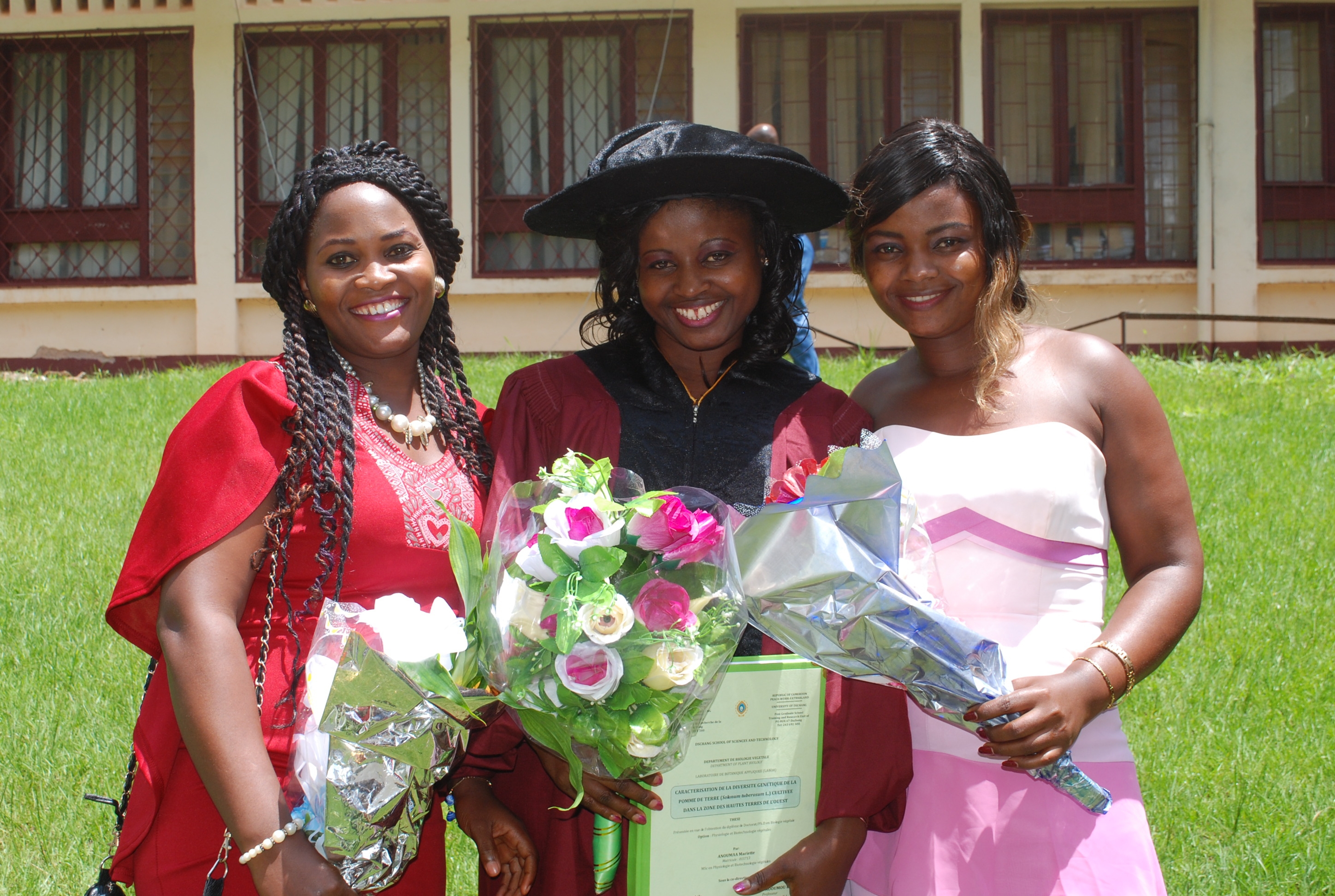
Managing food safety and quality in small-scale food processing for RTB value chains in Sub-Saharan Africa-Call for applications
- Details
- Written on Tuesday, 24 October 2017 16:21
Background
Food safety concerns are a growing focus in Africa, as elsewhere in the world. Food borne illnesses are a preventable and under-reported public health problem. These illnesses are a burden on public health and contribute significantly to the cost of health care. They also present a major challenge to certain groups of people. There are a number of food safety concerns during processing. Food safety is one of the most important aspects for processing plants around the nation. Each year, facilities try to prevent any food illness outbreaks or bacterial contamination by following the strictest sanitary regulations, but sometimes facilities lack awareness of the simplest safety measures. The lack of awareness is greater in sub Saharan Africa (SSA) and especially among traditional crops such as sweet potato, cassava and bananas that were not traditional considered for commercialization.
Research on Roots, Tubers and Bananas (RTB) is collaboratively done by five CGIAR centers: International Potato Center (CIP), Biodiversity International, the International Centre for Tropical Agriculture (CIAT), the International Institute of Tropical Agriculture (IITA) and the French Agricultural Research Centre for International Development (Cirad) working on roots, tuber and bananas (RTB). A large population of people living in Sub-Saharan Africa (SSA) depend on RTB crops (cassava, potatoes, sweetpotato, yams, bananas and plantains) for food and generation of income. RTB crops provide 14% to 60% of the daily per capita calories consumed by millions of people living in the least developed countries. The research work by the five centers aims at benefiting small-scale farmers and food processors, consumers and anyone else along the value chain. The CGIAR centers have strategized on promoting postharvest technologies, value chains and market opportunities as one of their major research themes on RTB. There are considerable efforts to increase the economic value of RTB through value addition. Value added food products from RTB i.e. the Orange Fleshed Sweetpotato (OFSP) bread, have been shown to more nutritious and acceptable to consumers as compared to their product substitutes. Transfer and adoption of food processing technology for RTBs has been effected through seminars, workshops, trainings and demonstrations in SSA.
Commercialization of RTB products has been beneficial to several clienteles along the food chain: farmers who get ready markets for their produce hence increasing their household income; food processors utilizing the availability of ready and cheap RTB as raw materials/food ingredient consequently lowering production costs and increasing profit margins; and consumers who are offered with wide choices of affordable and nutritious food products.
The Challenge
Currently, commercial processing of RTB products in SSA is done by private companies on a small-scale basis. Small-scale food business enterprises are however faced with practical challenges of developing, implementing and maintaining food safety programs. This is attributed to lack of qualified personnel with skills, experience and technical expertise in food safety, lack of in-house microbial risk evaluation, lack of training, lack of or insufficient funds for providing food safety resources and lack of commitment to embrace food safety by food handlers. Due to these factors, the hygienic status of these facilities is generally low and pose a huge public health risk to consumers. It is necessary to address food safety challenges faced by small scale businesses involved in value addition of RTBs by designing an informative food safety training workshop scheduled for 4-8 December 2017.
Why Train Small-Scale Processors of RTBs on Food Safety?
Food safety scares are issues of great concern in SSA. Low compliance to Good Manufacturing and Good Hygiene Practices by small scale food processors often lead to food contamination that could result to cases of foodborne disease outbreaks and deterioration in food quality. Contamination in food processing is attributed to poor personnel hygiene, lack of or ineffective cleaning and sanitation of equipment and food preparation surfaces, use of contaminated raw materials and generally contaminated food processing environment. It is therefore mandatory for small-scale processors of RTBs to implement and adhere to appropriate hygienic practices during processing, storage and distribution of their food products. Training in food safety has been shown to have a positive impact on knowledge, behavior and practices of food handlers as well improving product quality. It is therefore important to conduct a food safety training to create food safety awareness to small-scale processors of RTBs in SSA faced by challenges in upholding food safety regulations.
Training Objectives
The objective of the training workshop is to enhance compliance to food safety regulations by small scale enterprises involved in RTB processing in SSA. The skills and knowledge gained from the training will be important in addressing food safety challenges that arise from lack of compliance to good Hygiene and Manufacturing Practices.
Target Group
The training workshop mainly targets RTB value chain actors in SSA from private sector, government and academia.
Training Approach/Method
The training sessions will involve power-point presentations, video presentation, pictorial and hands-on demonstrations on food safety. The training will cover food safety topics on personal hygiene, hand washing hygiene, food processing environmental hygiene, food contamination, foodborne illnesses, cleaning and sanitation, pest control and waste management. A participatory approach will be applied with each particpants developing a food safety plan or strategy for their establishment or project which will be evaluated and shared with other partipants. Evaluation using a food safety questionnaire will be done prior to and after the training. Successful participants will be issued a Level 2 Food Hygiene certificate from the Natural Resources Insitute (NRI) at Greenwich University, UK.
Expected outputs / outcomes
Improved knowledge, practices and behavior on food handling by food handlers. Food handlers will apply gained knowledge and skills from the training in their day to day food processing and handling operations without violating food safety practices.
Identification of food safety risky areas in processing of different RTB products and provide miti-gate measures for improving food safety and quality of processed products.
Sharing of food safety and food process technology ideas among participants through new connections and networks.
At least 30 RTB value chain actors in SSA trained.
Applicant eligibility / requirements
The training workshop targets processors working with RTBs, researchers involved in RTB value addition, government and NGO professionals working on food safety issues.
Applicants must have basic knowledge in biology, food science and nutrition.
Applicants must be proficient in both written and spoken English.
Women researchers are particularly encouraged to apply.
There are few fully-funded slots on highly competitive basis. Applicants able to secure their own sponsorship to meet full or part of the course costs are highly encouraged to apply. The full course cost is approximately USD1500 (exclusive of travel costs).
Application timelines and process
Call release: October 23 2017
Application deadline: November 4 2017
Link to application form is available here: http://hpc.ilri.cgiar.org/beca/training/Applications/BECA_CIP/
Late and incomplete applications will not be considered
Communication to all applicants: November 6 2017
Workshop venue
The training workshop will be held at the BecA-ILRI Hub and CIP, both located within the ILRI Campus, Nairobi, Kenya.
For more information about the BecA-ILRI Hub and CIP, please visit: http://hub.africabiosciences.org/ and https://cipotato.org/ respectively.
BecA-ILRI Hub alumnus Adey Desta awarded competitive US grant research grant
- Details
- Written on Friday, 06 October 2017 16:24
Adey Desta, an alumnus of the Biosciences eastern and central Africa-International Livestock Research Institute (BecA-ILRI) Hub has been awarded a grant under the Partnerships for Enhanced Engagement in Research (PEER) Program.
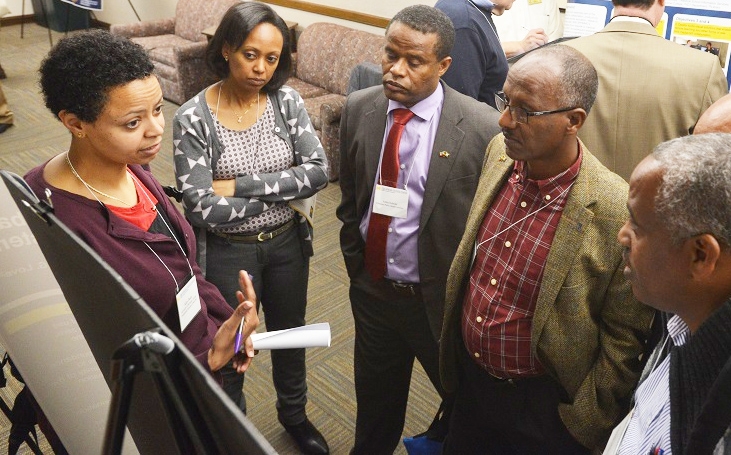
Adey Desta (left) explains her research during an Ethiopia-Michigan Collaborative Consortium conference
Desta’s proposal entitled ‘Promoting Resource-Oriented Sanitation in Peri-urban Ethiopia through the Production of Struvite from Digested Sludge Filtrate’ was one of 27 selected from among the 100 eligible full proposals submitted—a total that was initially narrowed down from the 454 pre-proposals received and screened for eligibility and relevance. She will receive USD 287,025 to fund her research over a period of three years.
An assistant professor at the Addis Ababa University in Ethiopia’s Institute of Biotechnology, Desta is a beneficiary of the BecA-ILRI Hub’s Africa Biosciences Challenge Fund (ABCF) fellowship grant. During her time as a research fellow at the BecA-ILRI Hub in 2012, Desta conducted research that helped identify and determine the prevalence of functional microorganisms that contribute to the purification of tannery wastewater in an integrated biological treatment system. A subsequent ABCF fellowship in 2014 gave her access to next generation sequencing and the script-based data analysis, access she says she would never have dreamed of experiencing in Africa.
‘My experiences and research at the BecA-ILRI Hub underpins my success in being able to attract funding for my current project,’ said Desta, ‘I have been able to generate and process valuable data in high-end facilities without travelling far from home and acquired skills that enabled me to publish my work in a high impact peer-reviewed journal through a scientific paper writing workshop.’
In 2015, Desta was accepted into the University of Michigan African Presidential Scholars (UMAPS) Program that offers early career faculty from African universities residencies of up to six months.
The highly competitive PEER grant is supported by the United States Agency for International Development (USAID) in collaboration with several U.S. Government (USG) supported agencies and administered by the U.S. National Academy of Sciences (NAS). It funds scientists in developing countries, partnered with USG-supported collaborators, to conduct research and capacity-building activities on topics with strong potential development impacts.
BecA-ILRI Hub director visits AfriqueOne- African Science Partnership for Intervention Research Excellence program in Abidjan
- Details
- Written on Wednesday, 20 September 2017 16:28
The recently appointed director of the Biosciences eastern and central Africa-International Livestock Research Institute (BecA-ILRI) Hub, Jacob Mignounga visited the AfriqueOne-African Science Partnership for Intervention Research Excellence (ASPIRE) program office at the Centre Suisse de Recherches Scientifiques (CSRS) in Côte d'Ivoire on 7 September 2017.
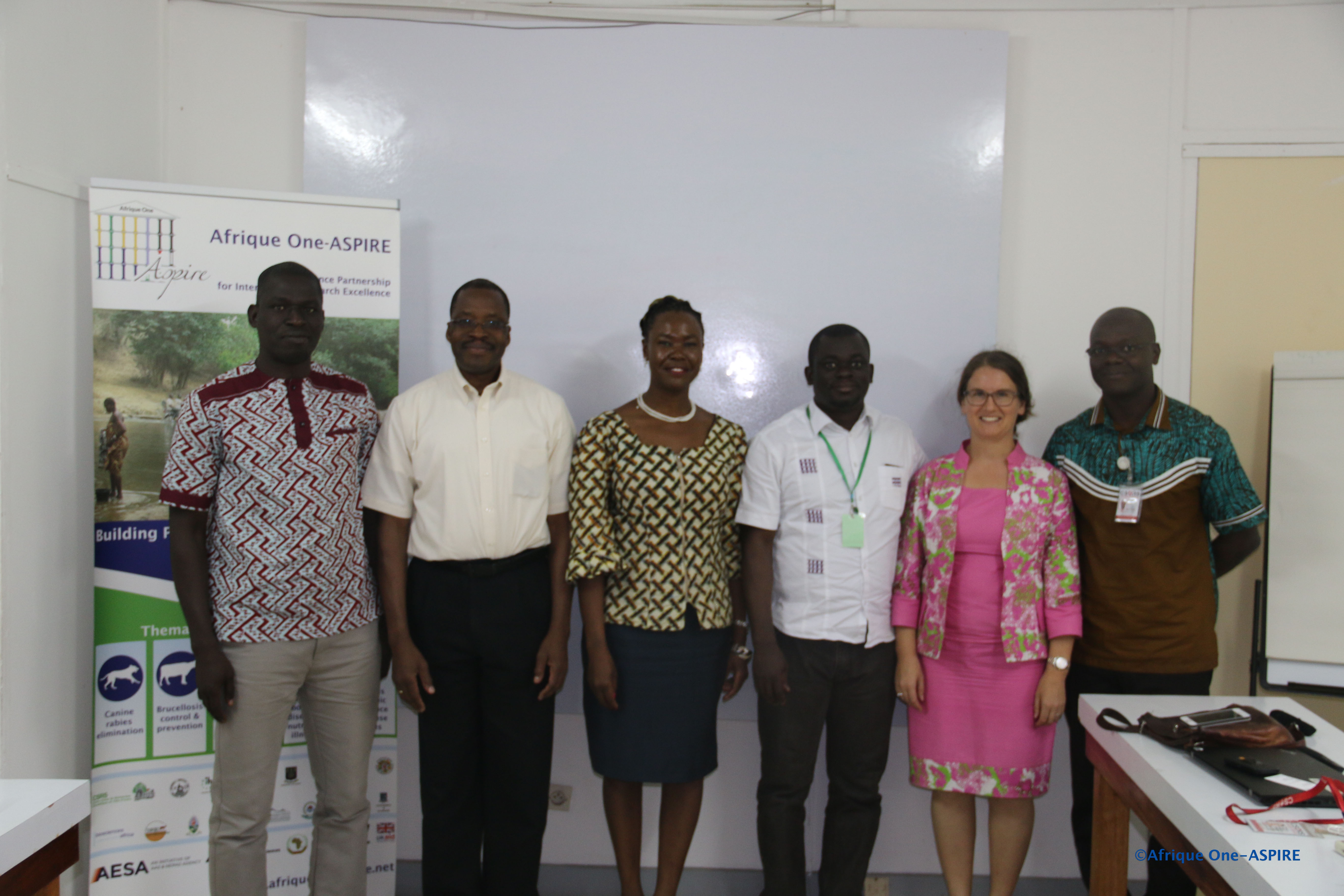
left to right: Parfait Kouakou (University Peleforo Gon Coulibaly Korhogo); Jacob Mignouna, Ethel Makila and Nasser Yao (BecA-ILRI Hub); Kathrin Heitz-Tokpa (AfriqueOne-ASPIRE); Karim Ouattara (CSRS)(photo: AfriqueOne-ASPIRE/Emmanuel Dabo)
he visit was an opportunity for the AfriqueOne-ASPIRE team to meet with the new BecA-ILRI Hub director, Jacob Mignouna and apprise him of the activities of the partnership which is building a world-leading pan-African research capacity in One Health science—ensuring better human and animal health and well-being, greater financial efficiencies and the development of environmental services through closer cooperation between human and animal health, and related disciplines and sectors.
AfriqueOne-ASPIRE program manager Kathrin Tokpa, communication officer Emmanuel Dabo, and the head of CSRS research group on biodiversity ethology and conservation (BEC) Karim Ouattara, received the BecA-ILRI Hub director. BecA-ILRI Hub communication officer Ethel Makila, plant molecular breeder Nasser Yao and alumnus of the Africa Biosciences Challenge Fund (ABCF) fellowship program Parfait Kouakou, who is the technical adviser to the president of University Peleforo Gon Coulibaly in Korhogo, Côte d'Ivoire were part of the visit that included a tour of the research facilities at CSRS.
Ouattara gave a presentation on the work of CSRS while Tokpa’s presentation on the AfriqueOne-ASPIRE program highlighted the BecA-ILRI Hub’s main role as: the provision of laboratory and bioinformatics training; hosting of research fellows through the Africa Bioscience Challenge Fund (ABCF) fellowship program; access to the biobank at ILRI’s Azizi biorepository; postdoctoral scientist training opportunities; mentorship; and collaborative resource mobilization. The BecA-ILRI Hub’s senior scientist Wellington Ekaya is also a member of the board committee on communications and policy for the Afrique One-ASPIRE.
Following both presentations, Ouattara emphasized the need for strengthened partnerships that would leverage expertise in various African research centres of excellence, for example genomics expertise at the BecA-ILRI Hub.
Mignouna concluded that the BecA-ILRI Hub and AfriqueOne-ASPIRE have a strong partnership on which to base joint resource mobilization activities, going forward.
The BecA-ILRI Hub strengthens agricultural bioscience research support to Côte d’Ivoire
- Details
- Written on Tuesday, 19 September 2017 16:33

The BecA-ILRI Hub and University Peleforo Gon Coulibaly, Korhoho teams (left to right) – Prof Ferdinand Vanga, Guy Romaric Balle, Dr Jacob Mignouna, Parfait Kouakou, Prof Adama Coulibaly, Ethel Makila, Nasser Yao, Prof René Yadé Soro
A delegation from the Biosciences eastern and central Africa-International Livestock Research Institute (BecA-ILRI) Hub visited the University Peleforo Gon Coulibaly of Korhogo (UPGC) Abidjan office on 5 September 2017. The meeting was called to enable the university and the BecA-ILRI Hub develop strategies to activate an existing memorandum of understanding.
The BecA-ILRI Hub team comprising director Jacob Mignouna, crop breeder Nasser Yao and communications officer Ethel Makila were in Côte d'Ivoire in the context of the 7th African Green Revolution Forum whose theme was Accelerating Africa’s Path to Prosperity: Growing Inclusive Economies and Jobs through Agriculture. They were met by the university’s president Prof Adama Coulibaly; vice president, Prof Ferdinand Adja Vanga; director of agro-pastoral management institute, Prof René Yadé Soro; lecturer/researcher in agro-economy and chief of the president’s staff, Guy Romaric Balle; and zootechnician-geneticist and technical advisor to the president Parfait Kouakou.
The meeting between the two teams was a follow up to a visit by UPGC senior officials to ILRI in 2014 organized by Parfait Kouakou, an alumnus of the BecA-ILRI Hub’s Africa Biosciences Challenge Fund (ABCF) fellowship program and steward of the BecA-supported community of practice on domestic cavy research.
The growing partnership between the BecA-ILRI Hub and UPGC that was initiated by Kouakou is testament to the mentorship in science leadership provided to researchers from national agricultural research systems through the ABCF program.
Scientific Research Paper Writing and Science Communication Training Workshops - 2017
- Details
- Written on Friday, 01 September 2017 16:37
The BecA-ILRI Hub seeks to strengthen the capacity of African National Agricultural Research Systems (NARS) to drive agricultural research and innovation in Africa for Africa. Through strategic partnerships with NARS, the Hub also acts as an accelerator for priority research conducted at the national level. The Hub’s primary delivery mechanism is the Africa Biosciences Challenge Fund (ABCF) Program. A full prospectus can be accessed here.
Communication of research findings in peer-reviewed journals and to non-expert audience is a major part of the ABCF program impact pathway. The program recognizes that skills in scientific writing and science communication are not an innate talent, but must be developed and honed through active and continued engagement in research and writing / journal publication, public engagement and training. The dynamic nature of today’s scientific world and the associated societal demands for addressing agricultural challenges places research scientists in a tight spot that requires them to acquire effective communication skills for engaging a wide spectrum of actors. Research scientists are increasingly expected to play a strong facilitative role with respect to scientific information exchange and utilization in addressing development challenges. In Africa particularly, researchers within NARS are under increasing pressure to demonstrate their contribution towards solving Africa’s agricultural challenges through research, dissemination and application of findings for policy influence.
The Training Workshops:
As part of the ABCF program, the BecA-ILRI Hub in partnership with the International Foundation for Science (IFS) and International Service for the Acquisition of Agri-biotech Applications (ISAAA) will hold two hands-on training workshops on scientific research paper writing, each followed by a four-day science communication training (communicating science to non-experts). The training workshops will be delivered in two separate but identical modular sessions as follows;
Module 1:
- Scientific Research Paper Writing Training Workshop 1: 20th – 25th November 2017
- Science Communication Workshop 1: 27th – 30th November 2017
Module 2:
- Scientific Research Paper Writing Training Workshop 2: 27th November – 2nd December 2017
- Science Communication Workshop 2: 4th – 7th December 2017
Training Approach:
A team of highly experienced internationally sourced trainers will conduct the training workshops.
Scientific writing: Selected participants will benefit from intensive, interactive hands-on training during which they will develop their own manuscripts with the goal of submitting to a journal for publication within three to six months of completing the workshop. Participants will be expected to bring along a project report for conversion into a paper, and/or figures and tables and any other illustrative material that have been generated from data analysis. To fully benefit from this workshop, bringing a manuscript at advanced stage of preparation is highly discouraged.
Science Communication:
Effective science communication is increasingly becoming an essential component of technology development-research-acceptance discourse. As well, technological advancements and dramatic changes in the socio-political environment and consumer sophistication are demanding for new approaches to science communication. The science communication training will acquaint scientists with communication approaches, skills and tools that promote public understanding of their research, effective mass and social media engagement and how to contribute towards evidence-based decisions and choices of products from bioscience research.
Eligibility / Applicants requirements:
The workshops are open to NARS researchers with a strong interest in improving their scientific writing and communication skills. More specific applicant requirements include the following:
- Currently conducting agricultural biosciences research within an African NARS.
- The courses have a major focus on applicants from BecA countries (Burundi, Cameroon, Central African Republic, Democratic Republic of Congo, Equatorial Guinea, Eritrea, Ethiopia, Gabon, Kenya, Madagascar, Republic of the Congo, Rwanda, Sao Tome and Principe, Somalia, South Sudan, Sudan, Uganda), however, eligible applicants from other African countries will also be considered.
- Special preference will be given to ABCF program alumni.
- Must have a research / project report for conversion to a paper, and / or analyzed research data through figures and tables.
- Fluent in English (written and spoken)
- Women candidates are particularly encouraged to apply.
How to apply:
Interested eligible NARS research scientists should apply by completing the online application form.
Key dates:
Call for applications release: 1st September 2017
- Application deadline: 30th September 2017. Late and / or incomplete applications will NOT be considered.
- Communication to applicants: 6th October 2017
Sponsorship:
There are several fully funded places for this workshops. However, eligible applicants who can fully or partially fund their participation (at least 50%) have an added advantage. The cost of workshop is approximately $1600, excluding flights and accommodation.
About the partners:
International Foundation for Science: The IFS aims to support excellent individual and collaborative research, to build capability of early-career scientists in the developing world, and to contribute innovation to the sustainable management of biological and water resources. In particular, to enable young scientists to contribute to a global research community that is aiming to reduce poverty and supporting sustainable development. The primary focus remains the promotion of excellent science through early-career research grants and capability enhancing support to individual researchers in developing countries. More information is available at: http://www.ifs.se/ifs-programme/
International Service for Acquisition of Agri-biotech Applications: ISAAA is a not-for-profit international organization that shares the benefits of crop biotechnology to various stakeholders, particularly resource-poor farmers in developing countries, through knowledge sharing initiatives and the transfer and delivery of proprietary biotechnology applications. ISAAA's global knowledge sharing network and partnerships in the research and development continuum, provide a powerful combination of science-based information and appropriate technology to those who need to make informed decisions about their acceptance and use. ISAAA’s services include capacity building for policy makers and scientists; regulatory oversight on such issues as biosafety and food safety; impact assessment, and science communication. More information is available at: http://africenter.isaaa.org/
Training Venue:
All workshops will be hosted at the BecA-ILRI Hub, a shared agricultural biosciences platform located at and managed by ILRI in Nairobi, Kenya. The platform increases access to world class bioscience facilities for African and international scientists conducting research on African agricultural challenges. The BecA-ILRI Hub was established as part of the African Union/ New Partnership for Africa’s Development (AU/NEPAD) African Biosciences Initiative (ABI). It was developed within the framework of NEPAD’s Centers of Excellence for Science and Technology and the Comprehensive African Agricultural Development Programme (CAADP). The BecA-ILRI Hub’s mission is mobilizing bioscience for Africa’s development, by providing a centre for excellence in agricultural biosciences. This enables research, capacity building and product incubation, conducted by scientists in Africa and for Africa. The Hub empowers African institutions to harness innovations for regional impacts in improved agricultural productivity, income, and food and nutritional security.
For comprehensive information about the BecA-ILRI Hub visit: http://hub.africabiosciences.org/
BecA-ILRI Hub alumnus recognized for research on small ruminants
- Details
- Written on Wednesday, 30 August 2017 16:55
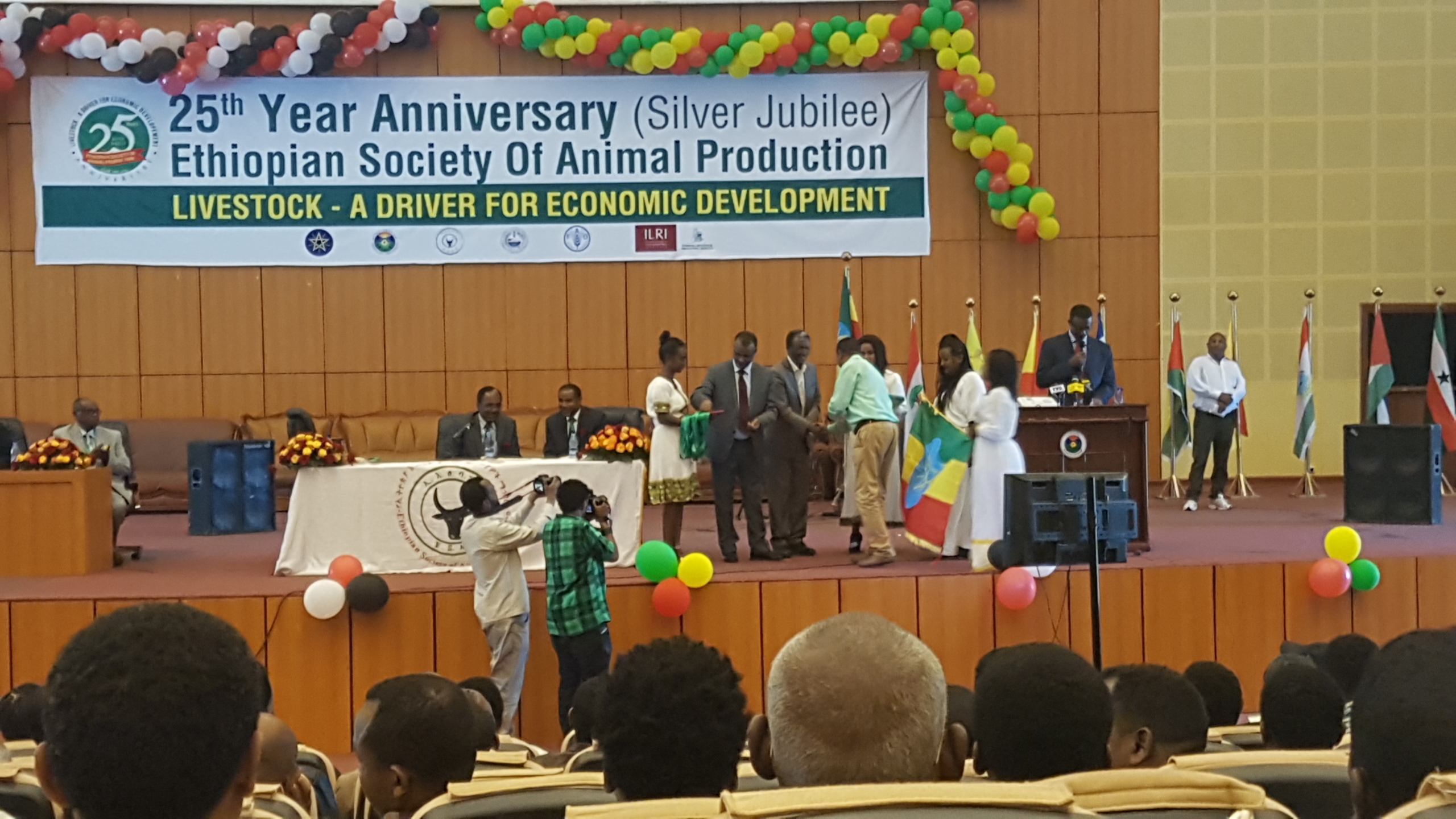
ABCF alumnus Getinet Mekuriaw receives the Young Professional award from the Ethiopian Society of Animal Production, 24 August 2017
Getinet Mekuriaw, an alumnus of the Bioscience eastern and central Africa-International Livestock Research Institute (BecA-ILRI) Hub was recently recognized for his research on goats.
A beneficiary of the BecA-ILRI Hub’s Africa Biosciences Challenge Fund (ABCF) program, Mekuriaw was awarded the “Young Professional Award” from the Ethiopian Society of Animal Production (ESAP) during its Silver Jubilee celebrations at Haramaya University from 24–25 August 2017.
Getinet Mekuriaw is an assistant professor at the Bahir Dar University in Ethiopia. In 2014, his PhD research was linked to the BecA-ILRI Hub’s Harnessing genetic diversity for improved goat productivity project where he contributed largely to establishing the extent of diversity among indigenous goat breeds in Ethiopia.
As a visiting scientist at the BecA-ILRI Hub from 2016 to mid 2017, Mekuriaw undertook research that has identified the genetic potentials of the goat populations of Ethiopia, Cameroon, Morocco and Egypt. His work has singled out genes that are candidates to enhance adaptation to harsh climates, disease resistance, reproduction, and hair fiber production.
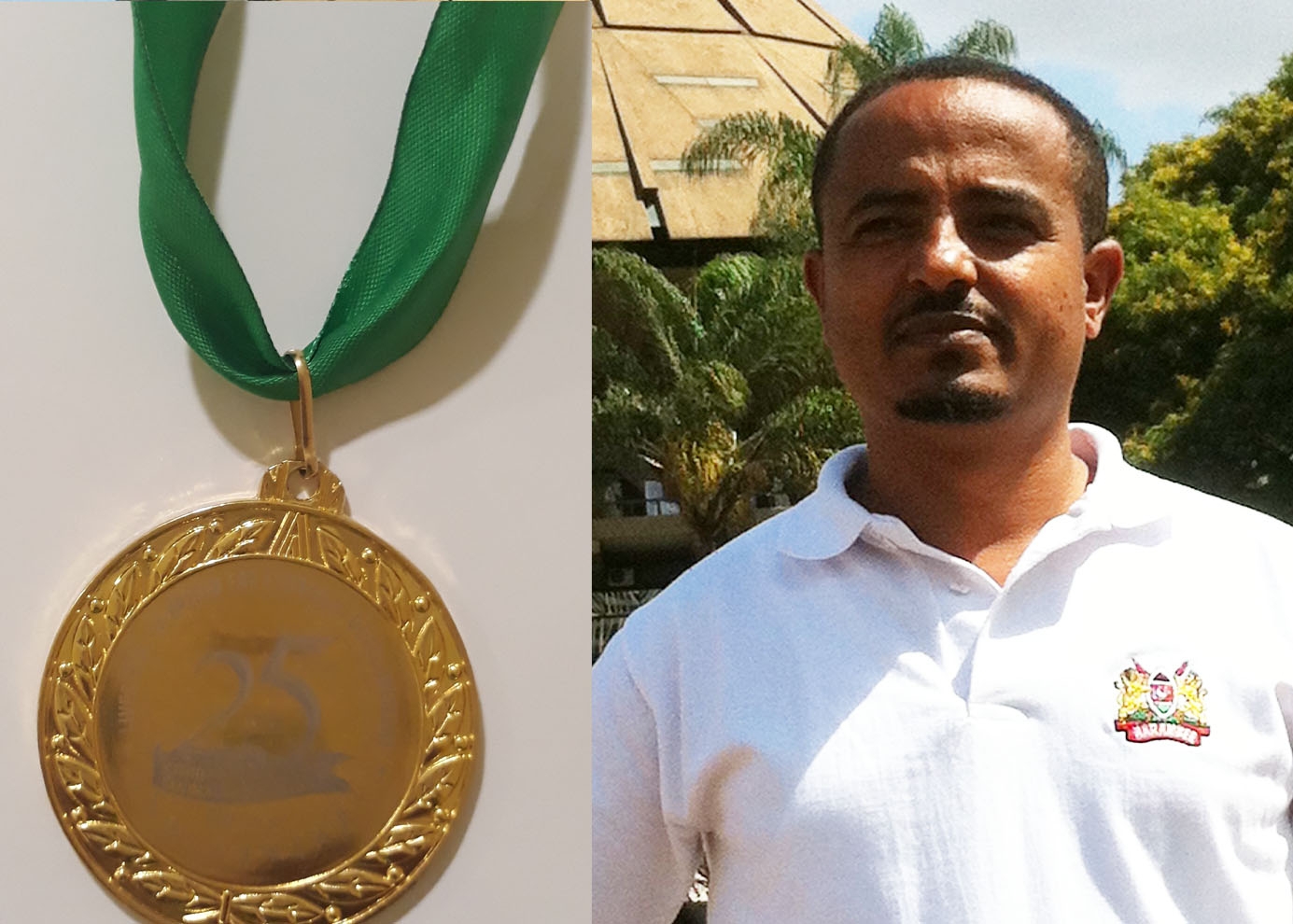
Mekuriaw is currently a postdoctoral scientist in dairy genetics and genomics at the Swedish University of Agricultural Sciences (SLU) in Uppsala, Sweden.
Getinet Mekuriaw at the Sixth All African Conference on Animal Agriculture in Nairobi in 2014, where he represented the BecA-ILRI Hub as an ABCF fellow. Inset - the Young Professional Award medal.
Head of the excellence in breeding platform tours ILRI facilities
- Details
- Written on Wednesday, 30 August 2017 16:40
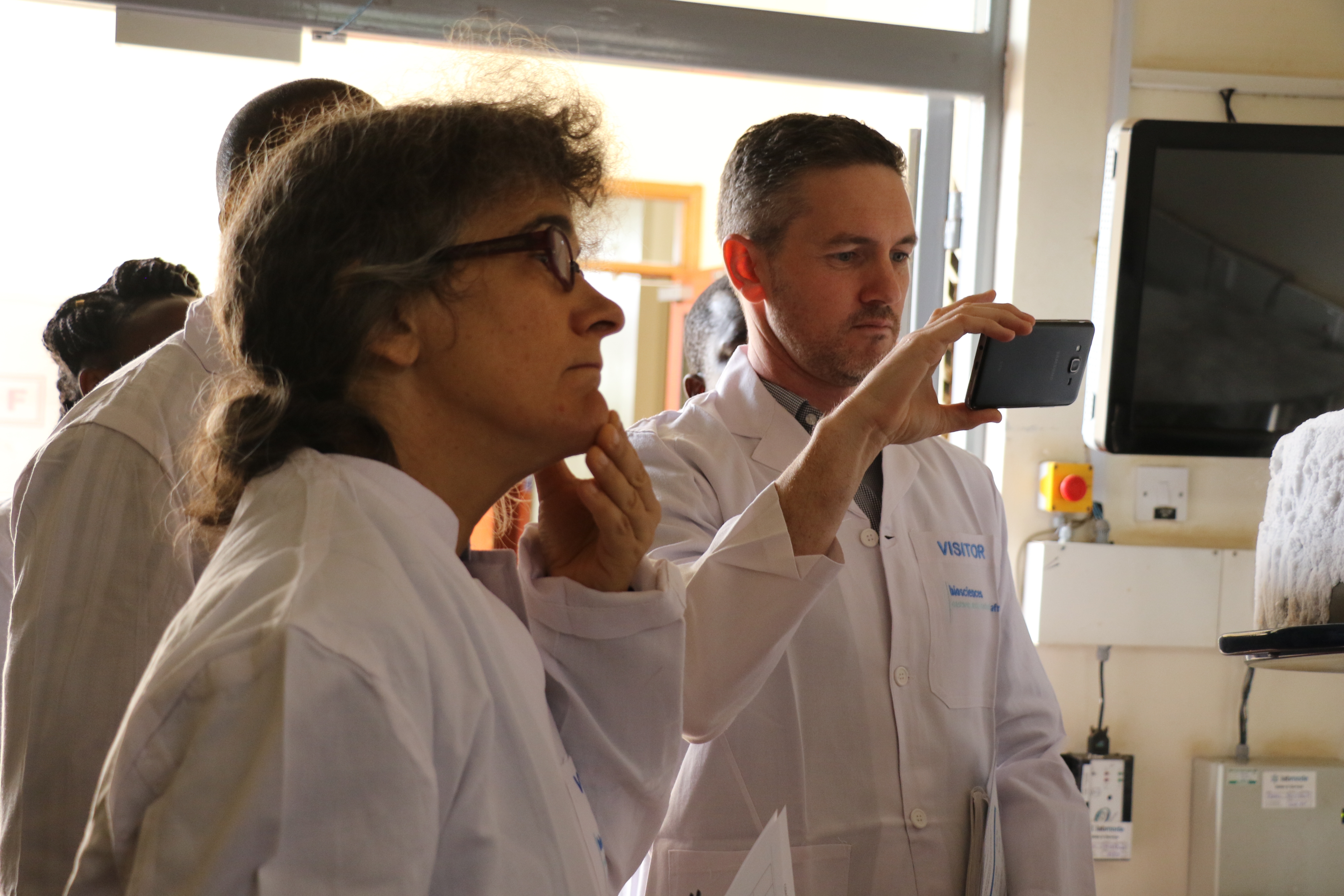
Mariane Banziger, deputy director general for the International Maize and Wheat Improvement Center (CIMMYT) and Michael Quinn, head of the Excellence in Breeding Platform visit the BecA-ILRI Hub (photo BecA-ILRI Hub/Brian Otieno)
The Biosciences eastern and central Africa-International Livestock Research Institute (BecA-ILRI) Hub hosted a lab tour by Michael Quinn, head of the new CGIAR initiative—Excellence in Breeding Platform— and Mariane Banziger, deputy director general for the International Maize and Wheat Improvement Center (CIMMYT)
The CGIAR is establishing the Excellence in Breeding Platform to support modernization of breeding programs in developing countries for greater impact on food and nutrition security, climate change adaptation and development. This will be achieved through provision of access to cutting-edge tools, services and best practices, application-oriented training and practical advice.
During the lab tour, Quinn and Banzinger visited the various technology platforms at the BecA-ILRI Hub including the genomics and bioinformatics platform and the Integrated Genotyping Service and Support (IGSS) platform; and the Plant Molecular Breeding platform. They also visited ILRI’s bio-repository and interacted with staff from CGIAR centers—International Potato Centre (CIP) and International Institute of Tropical Agriculture (IITA)— and scientists from African national research systems (NARS) whose research is hosted at ILRI. They also visited the experimental plots where five varieties of Brachiaria grass are being evaluated for adaptability to various environmental stresses under the BecA-led ‘Climate smart Brachiaria grass to increase livestock production in East Africa’ program, as well as the ILRI animal unit.
Quinn and Banzinger are on a mission to assess the status and challenges of individual centers’ breeding programs, information that will underpin the agenda of the new Platform.
Driving Africa’s agricultural development by enabling biosciences innovations- BecA-ILRI Hub 2016 Annual Report
- Details
- Written on Thursday, 10 August 2017 17:02
The Biosciences eastern and central Africa-International Livestock Research Institute (BecA-ILRI) Hub 2016 Annual report is out!
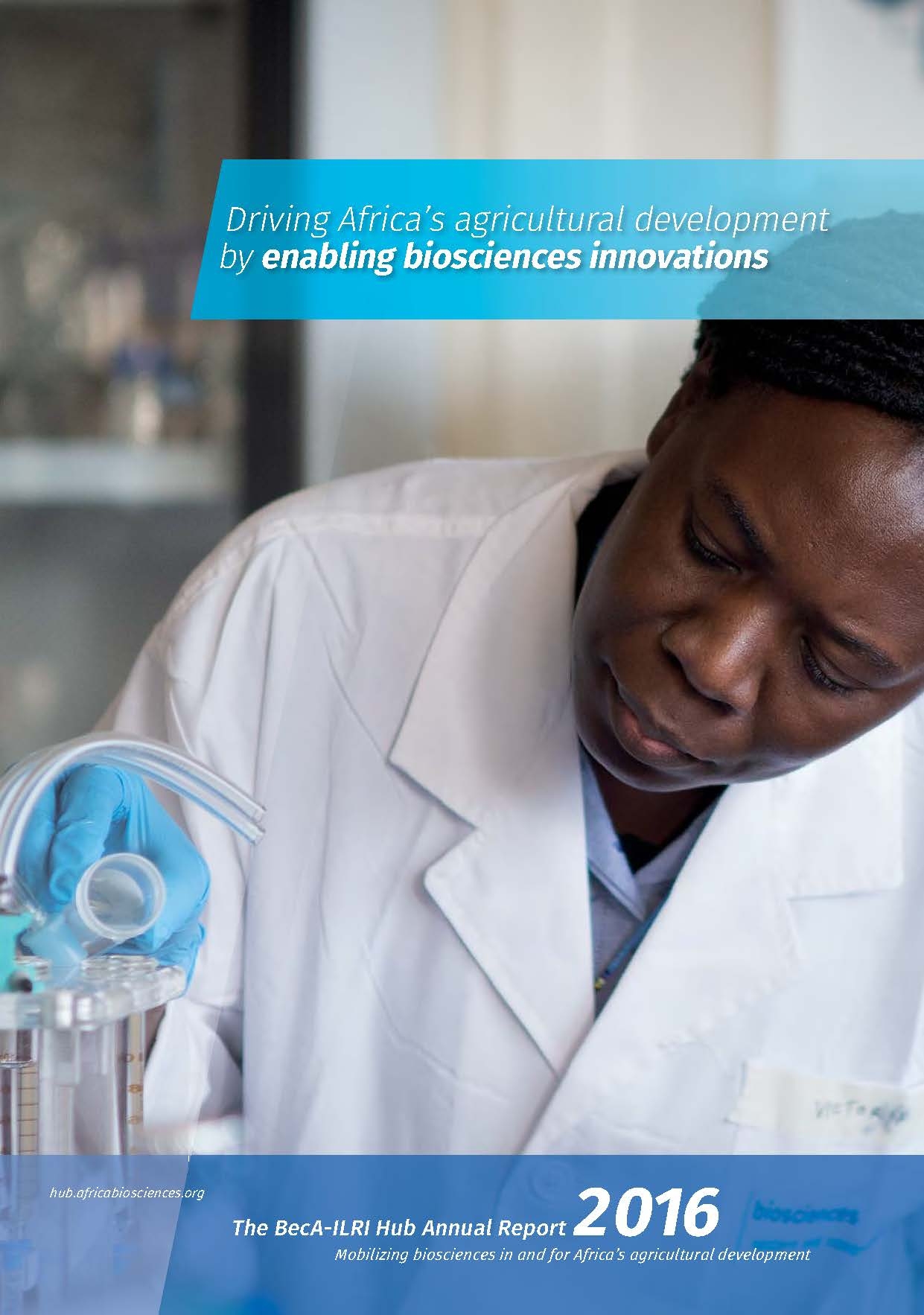
In 2016, the BecA-ILRI Hub celebrated 15 years as a centre for excellence for agricultural research. Against a backdrop of renewed impetus for innovation in agricultural research for development in Africa, BecA-ILRI Hub and its partners showcased their joint achievements in responding to the Science Agenda for Agriculture in Africa (S3A)— leveraging science in an agriculture-led social and economic transformation.
In this annual report, you will read about:
Fifteen years as a regional centre for excellence, strengthening the capacity of African national researchers and institutions in agricultural bioscience for development impact;
Research led by national programs that is influencing agricultural policy development in food security and livestock health;
Strategic partnerships that facilitate technology transfer and bring international research capabilities to bear on African agricultural challenges;
Progress in mobilizing regional researchers and institutions to pool resources and jointly tackle agricultural issues of continental importance;
Engagement with the advisory panel and donors to support, sustainability and strategic relevance within the region; and
A summary of the BecA-ILRI Hub’s human and financial resources.
The full report can be downloaded at this link: https://cgspace.cgiar.org/handle/10568/83016
Finding a lasting solution to rice blast disease in Africa
- Details
- Written on Monday, 31 July 2017 17:04
The Bioscience eastern and central Africa-International Livestock Research Institute (BecA-ILRI) Hub convened a stakeholder meeting in Arusha, Tanzania to discuss a possible roadmap to combat rice blast disease in Africa. The 22–24 July 2017 meeting was convened in collaboration with the United Republic of Tanzania’s Ministry of Agriculture, Livestock and Fisheries (MALF), the Kenya Agricultural and Livestock Research Organization (KALRO) and Exeter University.
The July meeting held under the auspices of the Durable Rice Blast Resistance for Africa project marked the culmination of four years of research by partners from East and West Africa, UK and USA. Rice is steadily becoming a staple food for a large population in Africa, yet its production is outstripped by demand, resulting in net imports. Rice blast disease is one of the major production constraints to rice production in Africa. Between 2013 and 2017, the BecA-ILRI Hub has been collaborating with international and regional partners to develop rice varieties that are resistant to blast disease and enhance rice production in sub-Saharan Africa
Representing the Assistant Director for Plant Health Services in the Tanzania Ministry of Agriculture Livestock and Fisheries, Grace David emphasized the need to find a solution to rice blast disease, which has been responsible for up to 40 percent yield losses in the country.
Project leader Nick Talbot from The University of Exeter expressed his optimism for the development of a continental surveillance system for rice blast pathogens:
‘The repository we have developed at the BecA-ILRI Hub for isolates of the rice-blast fungus will help in the establishment of a disease surveillance system,’ said Talbot. ‘Having such a facility will make it easier to monitor outbreaks of rice blast disease so we can identify specific forms of the pathogen. In this way, we can facilitate efficient screening of African rice varieties for blast resistance, and guide future rice breeding programs’' he added.
The BecA-ILRI Hub director Jacob Mignouna stressed the importance of translating the research to impact: ‘We have to ensure that all the research efforts being made to address this challenge eventually get to the farmer,’ he said.
The multidisciplinary team of experts in this project are drawn from national, regional and international research institutions including: AfricaRice, the BecA-ILRI Hub; the University of Arkansas; University of Exeter; KALRO; International Rice Research Institute (IRRI); Institut de l’Environnement et de Recherches Agricoles (INERA), Burkina Faso; and the Ohio State University. Their four-year efforts have made very significant progress in breeding for durable resistance against blast in rice varieties that are adapted for Africa, have set the stage for continental surveillance of the disease, and developed a robust collection of resources for outreach and awareness creation.
Five of the most promising genes that confer rice blast resistance to adapted African cultivars have been identified. These are already being included in breeding efforts by national rice breeding programs in Burundi, Kenya and Burkina Faso in activities supported by international rice research centres Africa Rice and IRRI. The bio-bank of different isolates of the rice blast disease-causing fungus established at ILRI in Kenya is facilitating regional monitoring of the blast pathogen population and contributing to efficient screening of African rice varieties for blast resistance. A KALRO-led outreach program connecting to rice farmers in Kenya has allowed the project to tap into existing knowledge and given a better understanding of farmer needs.
In closing the meeting KALRO Director for Crop Systems, Lusike Wasilwa commended the efforts of the project team.
‘Your achievements in this project will go a long way to securing one of the four most important food crops in Kenya,’ said Wasilwa. ‘Based on the current challenges facing the number one crop, maize, rice may become even more significant for food security in Kenya,’ she added.
Talbot attributed the success of the project to the strength of the partnership, highlighting AfricaRice and IRRI's significant expertise in marker-assisted plant breeding which he said had greatly accelerated the breeding efforts.
Also participating in the meeting were representatives from Embu University, Kenya Plant health inspectorate Service and University of Eldoret (Kenya); Chollima AGRO-Scientific Research Center, KATRIN Agricultural Research Center, Kilimanjaro Agricultural Training Center, Lekitatu Irrigation Scheme and Sokoine University of Agriculture (Tanzania); and Gulu University (Uganda).
This collaborative research project was supported by the Sustainable Crop Production Research for International Development (SCPRID) initiative grant, funded jointly by the Biotechnology and Biological Sciences Research Council (BBSRC), the Department of International Development (DFID), and (through a grant awarded to BBSRC) the Bill & Melinda Gates Foundation.
Laboratory Management and Equipment Operations Training Workshop 2017- Call for applications
- Details
- Written on Thursday, 27 July 2017 17:06
Background:
The BecA-ILRI Hub seeks to strengthen the capacity of African National Agricultural Research Systems (NARS) to drive research and innovation. Through strategic partnerships with NARS, the Hub also acts as an accelerator for priority research conducted at the national level. The Hub’s primary delivery mechanism is the Africa Biosciences Challenge Fund (ABCF) Program. A full prospectus can be accessed using the link: http://hub.africabiosciences.org/activities/capacity-building
As part of the ABCF program, the BecA-ILRI Hub in partnership with the Biosciences Research and Training Center at the National Crops Resources Research Institute (NaCRRI), Uganda will hold a five-day hands-on training workshop on Laboratory Management and Equipment Operations from 25 – 29 September 2017.
Efficient management of any laboratory facility ensures the cost-effective use of resources and the reliability of research-generated data. Laboratory management practices must ensure compliance with and adherence to national, international and/or local standards, policies, protocols, legal and regulatory frameworks for health and safety. This may include bio-containment, waste management, import and export of biological materials and other good laboratory practices. In addition, the core function of managing a laboratory facility including the personnel, equipment and activities contributes significantly towards the success of any laboratory. Therefore, good laboratory management skills are necessary for personnel responsible for these vital facilities.
The success of efforts being led by African scientists and other collaborators towards improving agriculture and tackling food insecurity is dependent on the efficiency of their laboratory environments and the ability of their facilities to harness advances in research. There is a need for personnel who are equipped with skills that contribute to a well run, safe and reliable laboratory. Such facilities will create a relaible platform from which to address the challenges of food security in Africa.
Relevant staff from African NARS who require further skills in laboratory management and equipment operations are invited to apply for the training workshop. A total of 25 applicants will be selected on competitive basis and sponsored to attend the training workshop.
Key topics to be covered will include;
- Laboratory design and classification
- Laboratory organization structure
- Documentation requirements
- Equipment operations and maintenance
- Laboratory health and safety
- Procurement procedures
- Shipping of biological samples
- Material transfer agreements (MTA).
A team of highly experienced trainers from ILRI, BecA-ILRI Hub and NaCCRI will conduct the training sessions.
Applicant eligibility and requirements:
The workshop aims to provide a learning forum for laboratory heads or supervisors, scientists and laboratory / research technicians. The main expected outcome in the long run is to have NARS laboratories being managed more efficiently to ensure safe use and high quality research output.
The BecA-ILRI Hub places greater focus on nationals of BecA countries: Burundi, Cameroon, Central Africa Republic, Congo Brazzaville, Democratic Republic of the Congo, Equatorial Guinea, Eritrea, Ethiopia, Gabon, Kenya, Madagascar, Rwanda, São Tomé and Príncipe, Somalia, South Sudan, Sudan, Tanzania, Uganda. However, suitable applicants from other African countries will be considered.
Applicants must be proficient in both written and spoken English.
Women researchers are particularly encouraged to apply.
Application timelines and process:
Call release: 27th July 2017
Application deadline: A complete online application form must be submitted latest midnight 18th August 2017 (Nairobi time).
Late and incomplete applications will not be considered
Communication to all applicants will be done by 20th August 2017
Training approach:
The workshop will comprise series of lectures, extensive hands-on practical sessions, group discus-sions and experience sharing by, and with participants. Pre- and post- workshop evaluations will be conducted by the trainers.
Workshop venue:
The training workshop will be held at NaCRRI - Biosciences Research and Training Center in Namu-longe, Uganda. NaCRRI is a public agricultural research institute under the policy guidance and co-ordination of the National Agricultural Research Organisation (NARO). The mandate of NaCRRI is to generate, develop and disseminate appropriate crop technologies, methods and knowledge on food and cash crops of national importance. NaCRRI works towards generating crop research outcomes for impact, addressing critical farmer challenges for a healthier and wealthier populace.
For more information about NaCRRI visit: www.nacrri.go.ug
Recent News View all News
-
BecA-ILRI Hub biennial report 2018-19
- Tuesday 14th July 2020
-
ABCF 2020 - Call for applications
- Saturday 14th December 2019
-
Brachiaria Grass is introduced to Masindi, Uganda
- Thursday 18th October 2018
-
Reducing Toxicity of Grass Pea
- Friday 28th September 2018

